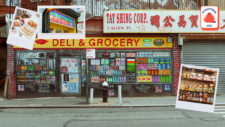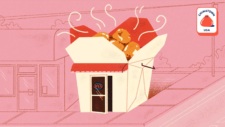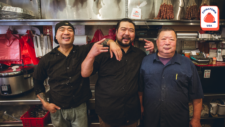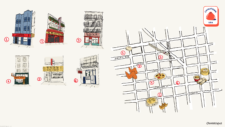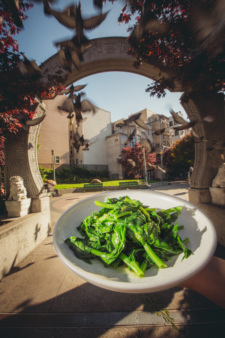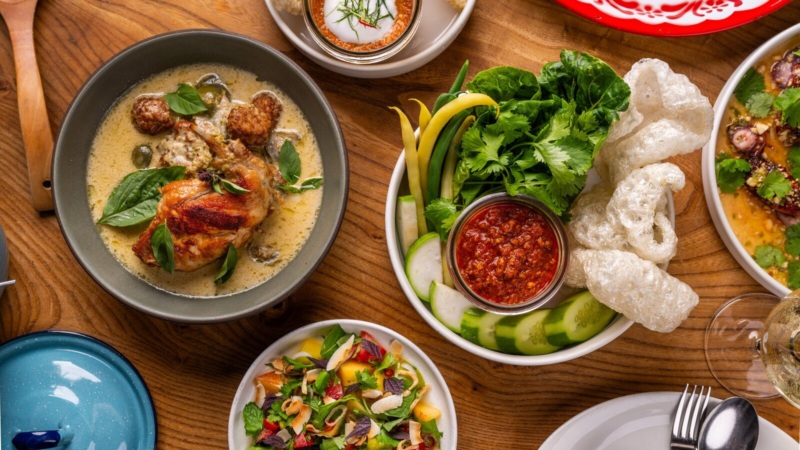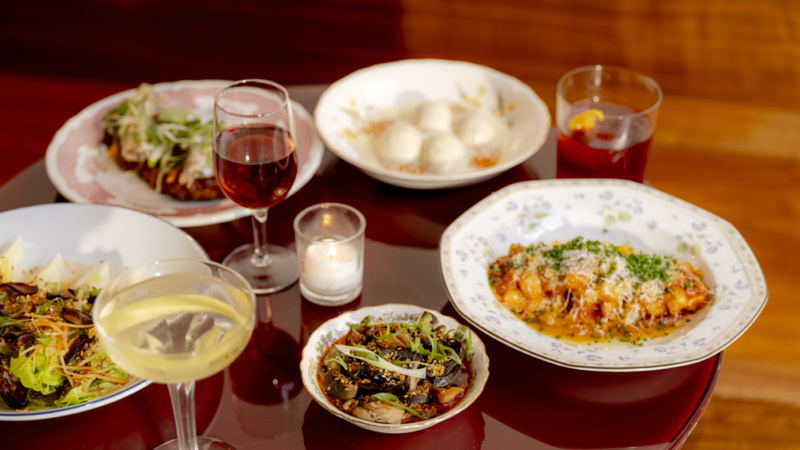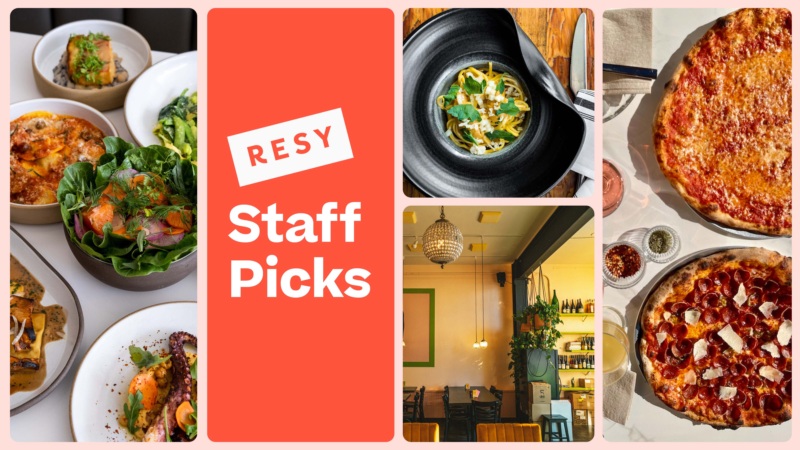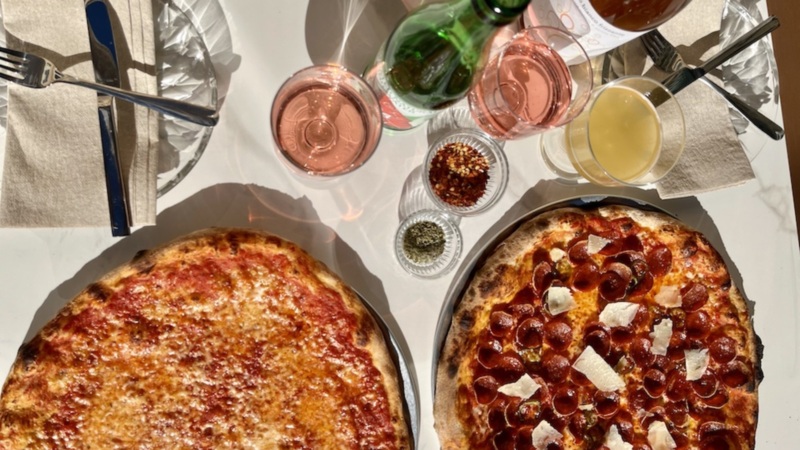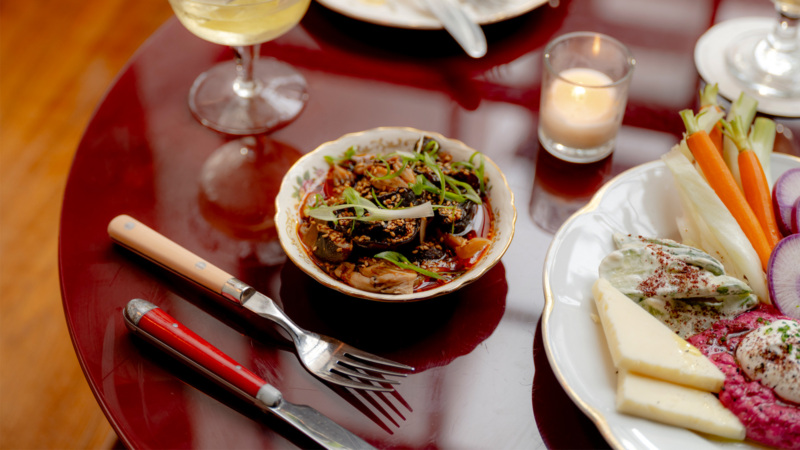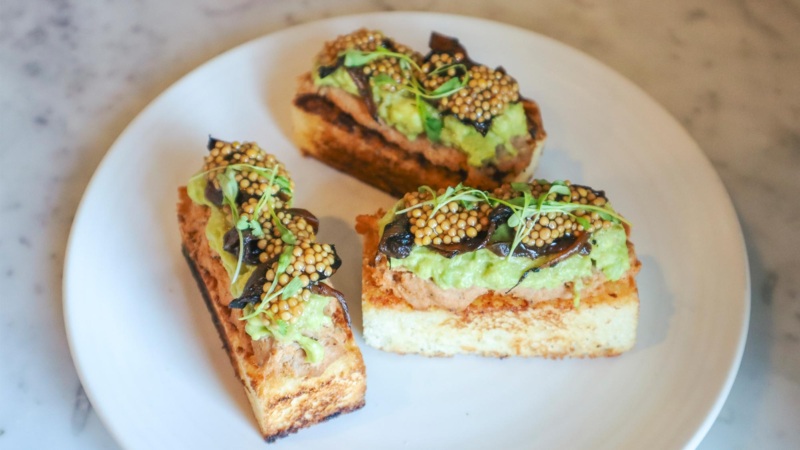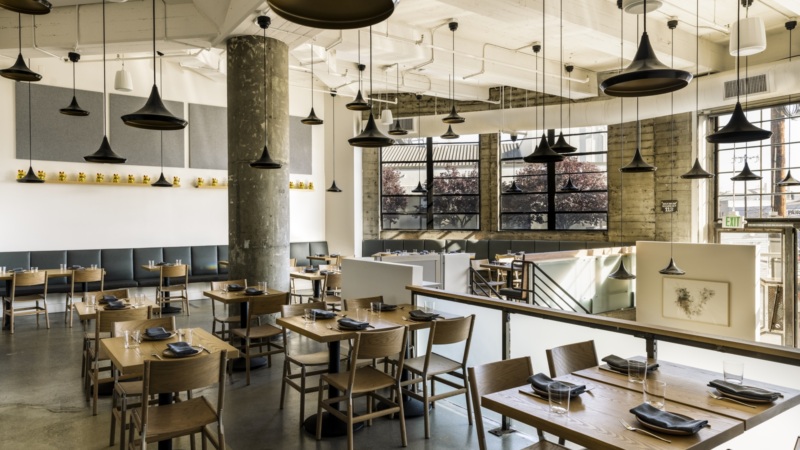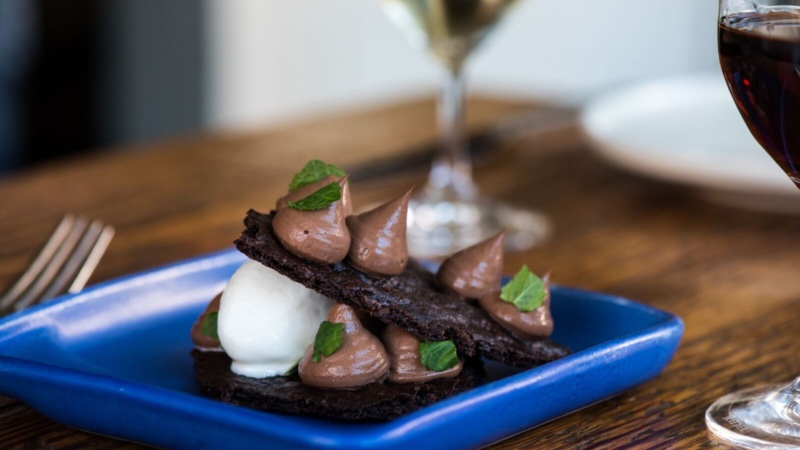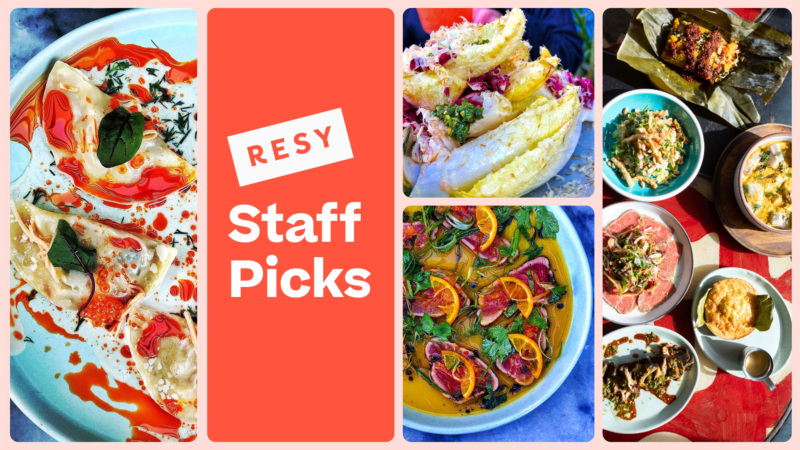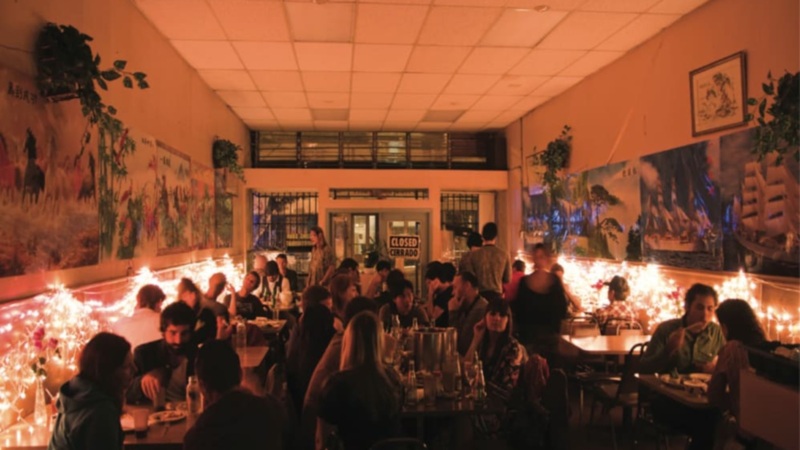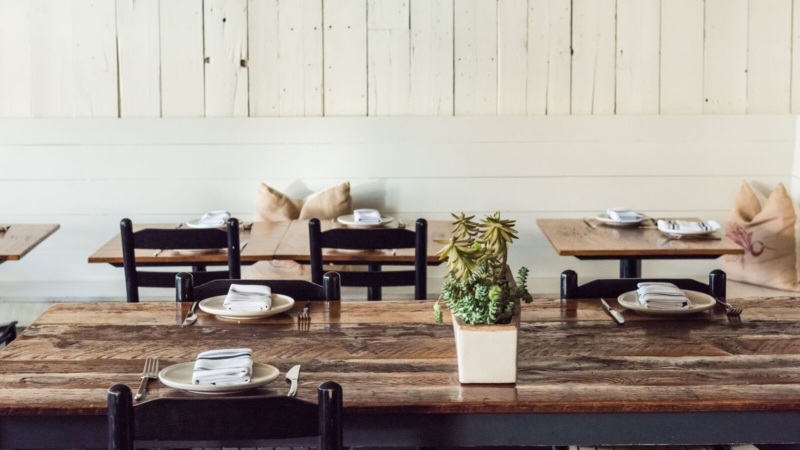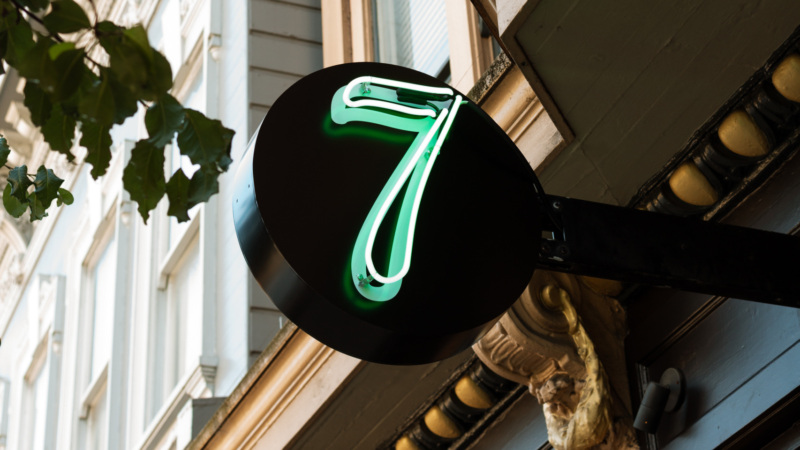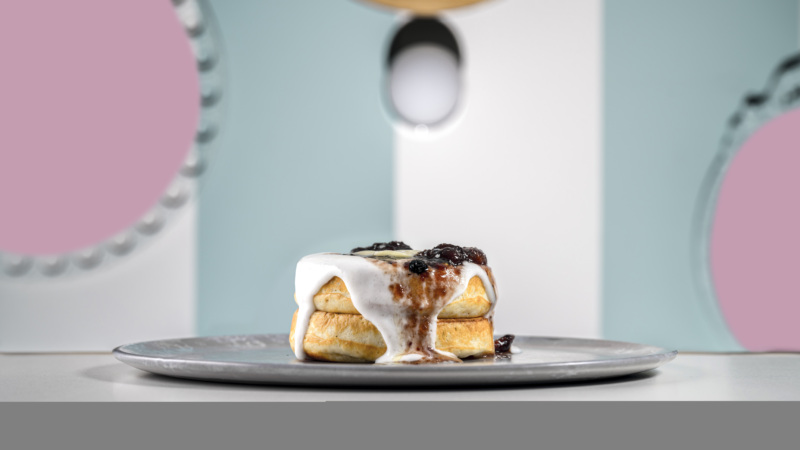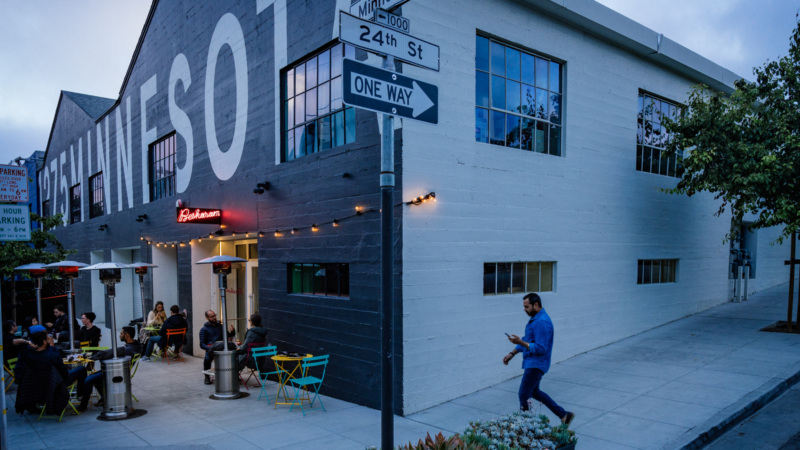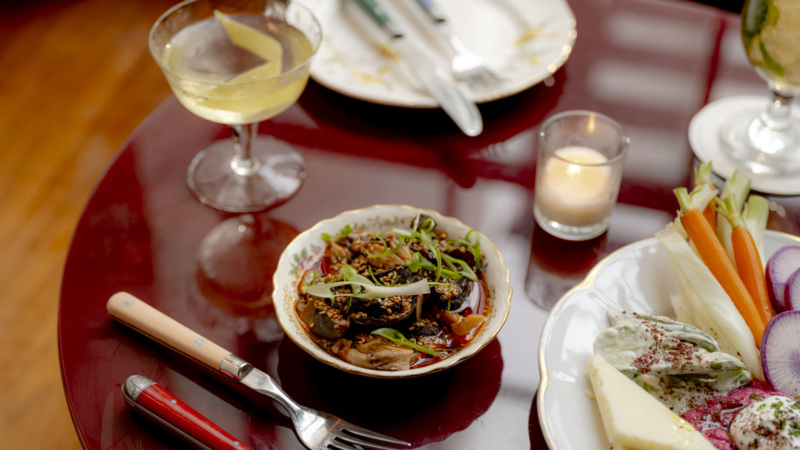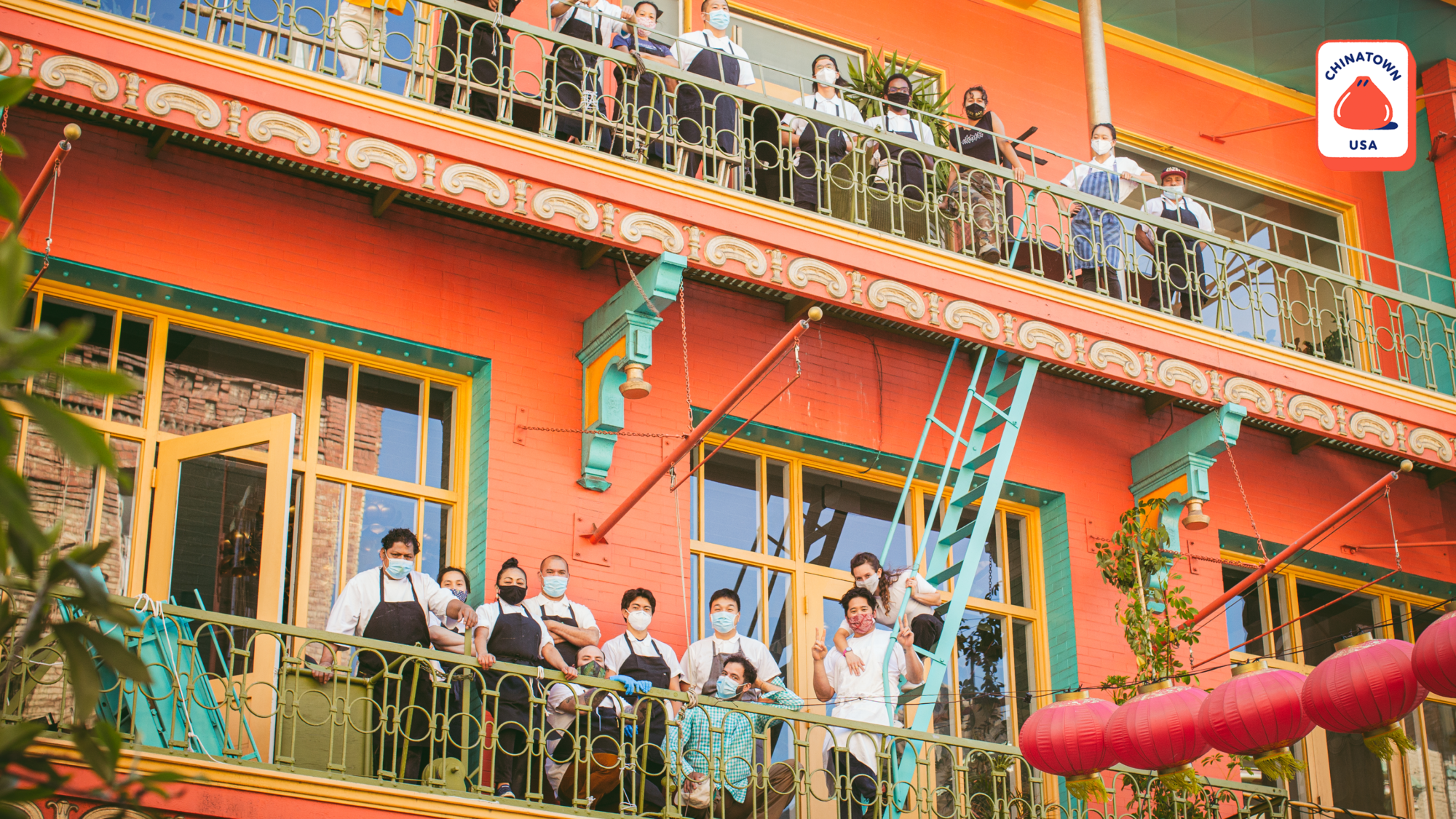
All Brandon Jew Wants Is For Chinese Restaurants to Know Their Worth
When a Chinese auntie pays you a compliment — perhaps lauding your intelligence or admiring your rosy cheeks — there are a few acceptable responses, none of which is “Thank you.” “Méi yǒu,” meaning “not have,” is a straight-up negation. “Nálǐ, nálǐ” literally means “Where, where,” as if the intended target of the praise must be lurking behind you. Another modest reply, one particularly useful if someone compliments something you have cooked, is “mǎmǎhūhū,” which means “so-so.”
Mamahuhu is also the name of Brandon Jew’s latest restaurant, which he opened in collaboration with Ben Moore and Anmao Sun earlier this year, serving American Chinese food made with sustainably sourced ingredients. As opposed to his more upscale flagship restaurant Mister Jiu’s, which is in the heart of Chinatown, Mamahuhu is located in the Richmond, a residential neighborhood with a large Chinese population. Jew lives there now, in the same house that Jew’s father grew up in. While a branding expert would probably advise against naming your restaurant “Just Okay,” Mamahuhu is a tribute to the Chinese ethic of humility. Please, try my food. It probably isn’t very good. If it is, I just got lucky.
My mother and her siblings also grew up in the Richmond, and my grandfather lived nearby in the Avenues until he passed away three years ago. He was the Henry of Henry’s Hunan, one of the first regional Chinese restaurants in San Francisco to find popularity among non-Chinese audiences. The original location, a nondescript hole-in-the-wall on Kearny Street in Chinatown, departed from the Cantonese-influenced dishes familiar to Americans. Instead, my grandparents served up the rustic, spicy food they remembered from home, dishes studded with chiles, house-smoked pork, and fermented black beans. In 1976, The New Yorker called it “the best Chinese restaurant in the world.” I wasn’t born yet, but my grandfather probably replied, “Nálǐ, nálǐ?”
In 2016, Mister Jiu’s opened four blocks away from the original Henry’s Hunan location, long since closed, and two blocks from the one on Sacramento Street, currently shuttered due to COVID-19. Jew took over the 10,000-square foot space formerly occupied by the banquet hall Four Seas, a grand, table-clothed affair with swagged drapery and golden lotus chandeliers. As acclaim for Jew’s cooking grew, garnering him a Michelin star and a spot on Bon Appétit’s Hot Ten list, I insisted my mom and I go next time I returned home from New York. She was dismissive. Twenty-two dollars for dumplings? Over a hundred for Peking duck? Those were white-people prices.
“I encounter that too, even from my own family,” Jew commiserates, sitting under the skylight at the Moongate Lounge, one floor above Mister Jiu’s. Chairs are overturned on tables. Sectional sofas are askew. Mister Jiu’s and Moongate Lounge haven’t served customers indoors in more than four months. He wears a Gallic striped t-shirt and a black face mask. Culinary tweezers — a kitchen tool as foreign to my grandfather as a zoodler — poke out of his apron pocket.
Jew also encountered skepticism from his family about his intended career path. “A chef was the last thing my family wanted me to be,” he says, echoing the experience of all Asian non-doctors and non-engineers in America. “My grandma was like, ‘Absolutely not. I did not come to this country so you could be a cook.’ It took a lot of convincing.” Jew goes on to explain that, actually, his work as a chef is intellectually rigorous, encompassing research and the history of Chinese cuisine and advocacy. I gently point out that he doesn’t have to make the case to me about why being a chef is a worthy career. “Yeah,” he chuckles, “that’s probably my family speaking.”
▪️
As for convincing my own mother, I launched a lobbying campaign to bring her around to Mister Jiu’s. Why, I asked her, did she value Eurocentric cuisine above her own? As someone comfortable paying $10 for spaghetti and meatballs at a red-sauce joint or $50 for bucatini with shaved truffles at a high-end restaurant, why did she think that Chinese food had to be a bargain? I argued that by ghettoizing the foodways of a particular culture — whether Chinese, Mexican, or Ethiopian — she was making a statement about which cultures are valuable, and which are not.
“The prices are driven by two things — the ingredients that we’re using, and the labor that goes into creating the dishes and keeping them consistent,” Jew explains. He rejects the notion that the labor and skill required for classical European cookery are somehow more complex than Chinese cuisine. “In my professional career, I learned how to cook French and Italian food before I learned how to cook Chinese,” says Jew. “If you’re poaching chicken for a French galantine? You’re trying to cook it really gently so that jelly forms under the skin, and the meat stays perfect. When I learned how to poach a chicken Chinese-style, I was like, ‘This is the same thing!’”
As for the ingredients, Jew’s approach can be attributed to his time at Zuni Café, Quince, and Bar Agricole, bastions of California cuisine driven by seasonality and local produce. But it can also be traced back to his grandmother. “My mom’s mom lived in Chinatown, she shopped in Chinatown, she went to church in Chinatown,” says Jew. “She ate like food was medicine, and would go to crazy extents to get exactly what she wanted. Going to the market, touching and examining the ingredients — that’s how I was taught professionally, but it’s also just how Chinese grandmas do it.”
Many of those ingredients used at Jew’s restaurants come from local farms run by his peers — first- and second-generation Asian Americans interested in connecting to their roots through food. One of his suppliers, Radical Family Farms in Sebastopol, is run by Leslie Wiser, a queer mixed Taiwanese-Chinese-German American who farms Asian heritage vegetables like celtuce and Chinese mustard greens. “There is this expectation that Chinese vegetables should be extremely cheap,” says Wiser, “and that’s coming from within our own communities, from the aunties. Our customers are not the OG immigrants. They’re like me — the children of immigrants who are interested in heritage cooking and cultural reclamation.”
For Wiser, farming is a way to fight back against the process of assimilation — she had never tasted a bitter melon before she grew one last year — while deepening her relationship to her own culture. Cooking plays a similar role for Jew. “The more I learn about Chinese cuisine,” he says, “the more I’m fascinated by the depth of its history, the techniques and observations that have passed from generation to generation. Chinese culinary traditions have the same worth as any other culture’s cuisine, and when I cook, I remember the people who came before me. I want to celebrate this food, and give it its due worth.”
▪️
My mom and I did eventually go to Mister Jiu’s, and although there was still some low-key griping about portion size, she ended up having a great time. She loved her fancy cocktail and artfully plated dessert — not something on offer at her favorite neighborhood spot on Clement. She gushed over the quail stuffed with sticky rice and lap cheong. She even fist-bumped the waiter. We were seated next to three white men in their 50s who, overhearing us talk about the family business, politely interjected. They had a standing Thursday night dinner at Henry’s Hunan, but this week, they decided to check out Mister Jiu’s instead. They seemed to have no qualms about spending $25 a person on a Chinese meal one week and $100 the next.
There’s a scene in The Joy Luck Club — not that everything relates back to The Joy Luck Club, but it kind of does — where An-mei’s mother grabs the strand of pearls given to her daughter by a duplicitous rival in an attempt to win An-mei’s favor. She smashes the pearls, exposing them as cheap fakes, and warns, “Know your worth.”
What Jew is doing in the kitchen is dynamic, inspired, and resolutely delicious. But it’s not revolutionary. Applying time-honored techniques and sourcing high-quality ingredients is something Chinese chefs have been doing for millennia. What is revolutionary is that Jew demands his due. He charges $16 for a vegetable stir fry because those vegetables were organically grown by an Asian American farmer, and cooked by someone who knows how to handle a flaming hot wok. That deserves respect.
Asserting our worth, taking up space, insisting that our cuisine is as valuable as cuisine from Western Europe — these are battles of Jew’s, Wiser’s, and my generation. Our immigrant parents and grandparents, already steeped in a culture that prizes humility, learned not to draw attention, or ask for too much, in order to survive. Don’t own your excellence; insist the food you cooked is just mamahuhu and maybe they’ll let you stay. But the next time someone pays me a compliment, I’ll answer, “Thank you.”
MacKenzie Chung Fegan writes about food, drinks, and culture for such publications as Bon Appétit, Vice, Wine Enthusiast, and the San Francisco Chronicle, and hosts the podcast Glitter & Doom. Follow her on Instagram and Twitter. Follow Resy, too.

